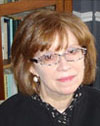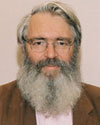 |
D-Lib Magazine
March/April 2011
Volume 17, Number 3/4
Table of Contents
Next Steps in Research, Education and Practice in Digital Curation and Publishing: A Workshop Report from the Fourth Bloomsbury Conference on E-Publishing and E-Publication
|
Carolyn Hank
McGill University
carolyn.hank@mcgill.ca
|
Joyce Ray
Institute of Museum and Library Services
jray@imls.gov
|
Anthony Watkinson
University College London
a.watkinson@ucl.ac.uk
|
doi:10.1045/march2011-hank
Printer-friendly Version
Abstract
Exploring opportunities for collaboration among publishers, researchers, librarians and other information professionals was the theme of the "Next Steps in Research, Education and Practice in Digital Curation and Publishing" workshop held in London on June 26, 2010. The workshop was co-sponsored and organized by the University College London (UCL) Department of Information Studies and the U.S. Institute of Museum and Library Services (IMLS).
Background
Effective, efficient and ethical curation of data is a contemporary challenge confronting a range of institutions involved in the manufacture and dissemination of scholarship. While work in the area of data curation is on-going, it remains an outstanding area of research and investigation. As just one example of this need, consider the preceding issue of this magazine. As regular readers may know, this was a special issue dedicated to the topic of research data, addressing issues related to data use, access, quality and preservation. Of particular consideration are the roles of multiple stakeholder groups within the system of scholarly communication. While publishers, researchers, librarians and other cultural heritage and information professionals have had long-standing interrelationships, opportunities for working collaboratively to develop new publications and data curation business models for the digital environment have not yet been sufficiently explored.
In response to these opportunities for collaboration, the "Next Steps in Research, Education and Practice in Digital Curation and Publishing" Workshop was held in London on June 26, 2010. The Workshop followed the Fourth Bloomsbury Conference on E-Publishing and E-Publications, "Valued Resources: Roles and Responsibilities of Digital Curators and Publishers," held June 24-25, 2010 (http://www.ucl.ac.uk/infostudies/e-publishing/e-publishing2010). Both events were co-sponsored and organized by the University College London (UCL) Department of Information Studies and the U.S. Institute of Museum and Library Services (IMLS).
Workshop Summary
Nineteen researchers, publishers, funders, and educators accepted invitations to participate, representing universities, research centers, and finding agencies from Canada, Germany, the Netherlands, the United Kingdom, and the United States. Attendees discussed challenges and opportunities relating to digital curation and e-publishing. In particular, participants considered activities that could be undertaken in the near future in order to promote communities of interest and collaborations, including alignment and advancement of shared research agendas and the development of data curation models. They also recognized the potential advantages of collaboration across professional, disciplinary, and national boundaries.
Recommendations
As evidenced by the range of roles, organizations, and geographic locations of the Workshop participants, interest and work in digital curation and publishing is an emerging and expanding area. Awareness of major initiatives and leading practitioners, researchers, and educators is essential to advance a digital curation and publishing research and action agenda. The Workshop served as one avenue to facilitate this awareness, but there is the need to foster and extend opportunities for supporting current awareness into the future, as well as the need to identity and involve key projects and people not represented at the Workshop. Participants proposed, vetted, and ultimately accepted five high-level recommendations. These resulting recommendations, summarized below, are intended to contribute to fostering such opportunities to advance work in the area of data curation and e-publishing:
Recommendation 1: Foster communication and collaboration among publishers, data scientists, librarians, archivists, and other practitioners who manage data, as well as funders, researchers, and educators to advance research and practice in digital curation and publishing.
Recommendation 2: Develop research agendas around digital curation and publishing. There need not be a single agenda, given the size and diversity of the professionals involved, but various stakeholders should be engaged to consider what research would be useful.
Recommendation 3: Develop a virtual research information network to monitor the changing environment in which researchers access and share data and documents, and in which libraries and publishers must now engage.
Recommendation 4: Seed some demonstration projects to aggregate and publish small science and small humanities content and tools in hybrid Web/paper formats.
Recommendation 5: Investigate and propose strategies for curating, identifying, and linking data to publications.
A detailed report of the Workshop, including a summary of key discussion points, an elaboration on the resulting recommendations, and a list of attendees, is available through IMLS (http://www.imls.gov/pdf/Bloomsbury.pdf). Additionally, the Fifth Bloomsbury Conference on E-Publishing and E-Publications, "Social Media and the Academy: How Social Networking can Enable and Enhance Scholarly Communication," will be held in London from June 30-July 1, 2011 (http://www.ucl.ac.uk/infostudies/e-publishing/). A one-day International Curation Exchange symposium at UCL will be held June 29 as a pre-conference to this year's Bloomsbury Conference. The symposium is co-sponsored by UCL, IMLS, and the Joint Information Systems Committee (JISC).
About the Authors
 |
Carolyn Hank is an Assistant Professor at the School of Information Studies at McGill University. She received her Ph.D. from the School of Information and Library Science (SILS) at the University of North Carolina at Chapel Hill (UNC-CH). She is a 2010 recipient of a Eugene Garfield Doctoral Dissertation Fellowship from Beta Phi Mu. She served as project manager for the DigCCurr I project (2007-2009), an IMLS-funded project to develop graduate-level curricular framework, course modules, and experiential and enrichment components and exemplars necessary to prepare students to work in the 21st century environment of trusted digital and data repositories. She is currently an instructor in the DigCCurr Professional Institute: Curation Practices for the Digital Object Lifecycle, a component of the DigCCurr II project (2008-2012). She teaches in the areas of digital preservation and access, digital curation, human information interactions, and research methods.
|
 |
Joyce Ray has directed the Institute of Museum and Library Service's (IMLS) discretionary library programs since 1997. She currently represents IMLS in several international activities relating to digital preservation and digital curation, including the International Digital Cultural Content Forum and DigCurV, a project funded by the European Commission to identify education and training needs for digital curators in Europe and to develop a common training framework and curriculum. Joyce is a certified archivist and holds a Master of Library Science degree from the University of Texas at Austin as well as a PhD in American history, also from the University of Texas at Austin. Prior to joining IMLS, she held positions as Assistant Program Director for Technological Evaluation and Acting Program Director, National Historical Publications and Records Commission; Special Assistant to the Archivist, National Archives and Records Administration; and Head of Special Collections, the University of Texas Health Science Center at San Antonio.
|
 |
Anthony Watkinson was an ecclesiastical historian by training and then spent three years as a scholarly librarian. From 1971 to 2010 he worked as a scholarly publisher in senior management positions in a number of companies and organisations including Academic Press, Oxford University Press, and Chapman & Hall mainly in science and medical publishing. He is now concentrating on his faculty position in the Department of Information Studies at University College London. Before his appointment at UCL he was a visiting professor at City University London where he was one of the founders of the CIBER research group — now at UCL. He has written on Electronic Solutions to the Problems of Monograph Publishing, Securing Authenticity of Scholarly Paternity and Integrity and most recently on Open Access with special reference to funding models. He also works as a consultant currently for the UK Publishers Association but has been on committees of JISC and other bodies in the wider information world. He is on the organising committee and the plenary chair of the Charleston Conference.
|
|